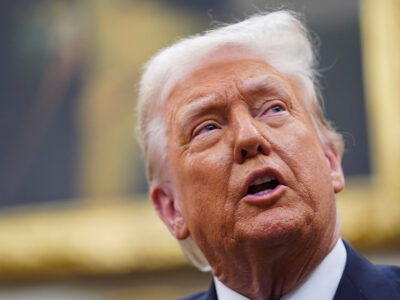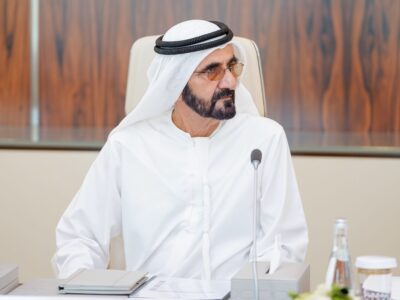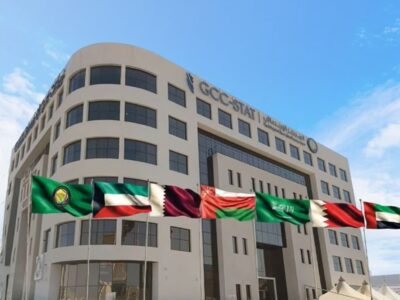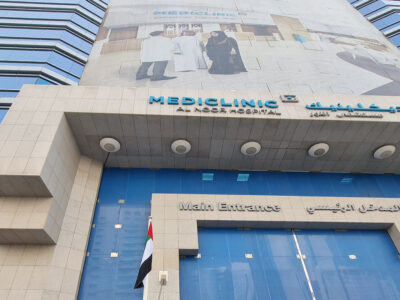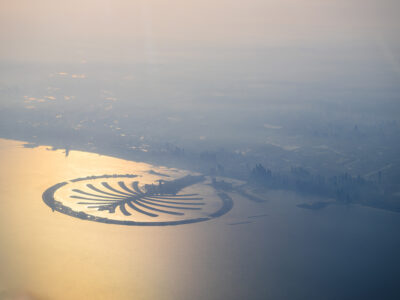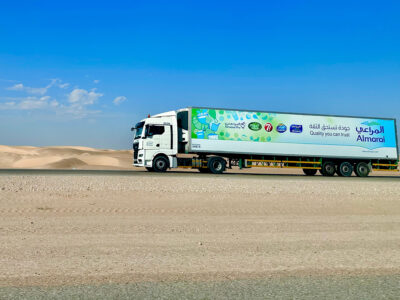Arabian Business ranks the top 50 publicly traded companies across the Gulf by market value and profiles the leading players making headlines across the region. The Top 50 ranks the top publicly traded companies listed on the stock exchanges of the UAE, Qatar, Saudi Arabia, Bahrain, Oman, Kuwait and Jordan. Market capitalizations are represented in dollar equivalents and are based on the closing prices of the stocks on June 22nd, 2008, using Bloomberg data.
1. Sabic $120.6 billion
Saudi Arabia
The surging cost of crude oil has helped Saudi Basic Industries Corp cement its position as the biggest publicly traded company in the region.
Formed over three decades ago to turn the waste gases that were once burned off at the wellhead into valuable petrochemicals, the company better known as Sabic has extended its global reach with operations across Europe, North America and Asia.
The world’s largest chemical maker by market cap is now eyeing the massive plastic-consuming market of China for the next chapter in its phenomenal growth story.
Under the stewardship of CEO Mohamed Al-Mady, Sabic has added high-value plastics to basic chemical commodities and plans to tap surging demand for plastics in China as the US market slows down.
Sabic, which is 70% government-owned, bought the GE plastics unit last year in the largest-ever purchase by a company based in the Gulf.
The Sabic empire grew from manufacturing ethylene and other petrochemicals from ethane which it buys from state-owned oil company Saudi Aramco. Most of its rivals outside the region use naphtha, a more expensive feedstock that is linked to the price of crude oil.
The surging price of oil has benefited Sabic while hurting its rivals in Europe, North America and Asia that rely on more expensive feedstocks.
2. Al Rajhi Bank $35.9 billion
Saudi Arabia
Al Rajhi Bank is the largest banking institution in Saudi Arabia and has been one of the biggest beneficiaries of the rising oil price this year. The Islamic lender won approval to start operations in Kuwait earlier this year as it aims to push out from its home base in the kingdom.
Shares in the company have risen by about 38% so far this year until June 23 as it expanded its retail, corporate and investment banking services.
3. Saudi Telecom $33.7 billion
Saudi Arabia
Saudi Telecom is the largest Arab phone company and is now expanding its services throughout Asia as its domestic telecoms market is opened up to competition from rival operators including Kuwait’s Zain.
The Saudi company paid around $2.56 billion for a 35% stake in Oger Telecom which gave it access to new customers in markets including Turkey and South Africa.
Last year Saudi Telecom also secured a mobile licence to operate in Kuwait and paid about $3 billion for a 25% stake in Malaysia’s Maxis Communications.
4. Etisalat $32.7 billion
United Arab Emirates
Emirates Telecommunications Corp is the second-largest Arab phone company and better known in its UAE base as Etisalat.
Like rival Gulf-based telecom companies, Etisalat is seeking to boost mobile penetration in new markets including the African continent, where it has just increased its holding in Atlantique Telecom, giving it a stronger position in West Africa.
Chairman Mohammed Omran said in May that the company was also considering investing in Iran’s mobile phone market.
5. Industries Qatar $27.8 billion
Qatar
Industries Qatar has already become a regional powerhouse in the production of petrochemicals, steel and fertilisers with around $5.9 billion invested in capacity expansion projects.
Qatar’s largest publicly-traded company aims to become the world’s biggest producer of ammonia and urea and a surge in global demand for fertilisers has helped it swell revenues over the last year.
6. Zain $26.5 billion
Kuwait
Zain is the third telecom company to appear in the top 10 companies and is also looking to Africa to expand its services.
The company formerly known as Mobile Telecommunications Co said in June that it would probably apply for a mobile operator licence in South Africa if the government offers a fourth licence there.
Earlier Zain completed the purchase of Western Telesystems, Ghana’s second-largest phone company.
7. Kuwait Finance House $22.8 billion
Kuwait
Kuwait Finance House is the biggest Islamic bank in the country and is adding new branches in Turkey, Malaysia and Bahrain. It aims is to operate some 175 branches around the world by the end of this year.
8. Samba $19.1 billion
Saudi Arabia
Samba Financial is expanding from its Saudi base and in June started operations in the UAE after also winning a licence to operate in Qatar.
Samba has been able to increase its Islamic and conventional finance business in Saudi Arabia over the last year helping to arrange large-scale financing deals for companies including Saudi Telecom and BNP Paribas. Samba shares however, have had a tough first half, losing around a third of their value from the beginning of the year to June 23.
9. National Bank of Kuwait $18.9 billion
Kuwait
National Bank of Kuwait is the biggest lender in the country by market value. The bank is planning to tap demand from wealthy Muslim expats in Europe by launching an Islamic bank in Switzerland.
At the same time NBK is seeking to expand closer to home with plans for operations in Algeria and Morocco. NBK has raised its stake in El Watany Bank of Egypt to 93.8% from the 51% stake it acquired last year at a cost of $516 million.
10. Emaar Properties $18.4 billion
United Arab Emirates
Emaar Properties has made headlines around the world for building the world’s tallest tower in Dubai – although the Middle East’s largest publicly traded real estate developer is keeping mum on what the final height of the Burj Dubai will be.
Emaar started building the $1.1 billion tower in 2004 as the centrepiece of its $20 billion Downtown Burj Dubai project.
11. Saudi Fertiliser Company $17.8 billion
Saudi Arabia
Saudi Fertiliser Company, the first petrochemical company in Saudi Arabia, has come a long way since its establishment in 1965.
The Dammam-based firm runs a fertiliser manufacturing operation that produces chemicals including ammonia, urea, sulfuric acid and melamine, a product used to make gum and paint.
The fertiliser-maker is 42% owned by the Saudi Basic Industries Corporation (SABIC), one of the world’s leading manufacturers of chemicals, fertilisers and metals and the largest chemical-maker by market value.
12. Arab Bank $17.3 billion
Jordan
Established in the 1960s as a means to offer joint banking services for the Arab world holistically by a Palestinian entrepreneur in New York, Arab Bank has since grown into the largest Arab banking branch network worldwide with over 400 branches in 29 countries, spanning five continents.
Headquartered in Amman, Jordan, Arab Bank has provided competitive products to its customers based on demand, and introduced two Sharia-complaint funds in early June from its Islamic banking division in tandem with the rising popularity of Islamic finance in the Middle East.
13. Kingdom Holding Company $17.2 billion
Saudi Arabia
Kingdom Holding Company, under the directives of HH Prince Alwaleed Bin Talal Al Saud, is one of the largest and most diversified firms in the world, renowned for its extensive portfolio of investments in hotels and international hotel management companies.
The Saudi-based company’s interests cover a broad range of sectors, including stakes in international firms such as Citigroup and the Walt Disney Company.
14. Emirates NBD $16.5 billion
United Arab Emirates
The merger of Emirates Bank International and the National Bank of Dubai last October heralded the arrival of Emirates NBD, now the largest bank in the UAE.
Since then it has lived up to its expectations by maintaining a position as the leading retail banking franchise and mortgage provider in the UAE, with over 100 combined branches operating in the region.
Aside from plans to expand further throughout the region, this financial powerhouse is ramping up its Islamic finance product offerings to cater to rising demand for Sharia-compliant services.
15. Qatar National Bank $15.9 billion
Qatar
Qatar National Bank, the first commercial bank owned by the nation, was established in 1964 and has grown to become one of the largest financial institutions in the region, and one of the leading banks in the country. It accounts for a market share of nearly 40% of the banking sector assets.
The Qatar Investment Authority owns a 50% equity stake in the bank, which has steadily grown to develop among the largest distribution networks in the country.
Qatar National Bank operates 42 branches in the region, 11 of which are dedicated to Islamic finance services.
The bank is rapidly establishing an international presence by acquiring stakes in financial institutions throughout the MENA region, including Tunisia, Algeria, Syria and Iraq. Recently, QNB obtained licences to operate in Sudan and Mauritania.
16. DP World $14.9 billion
United Arab Emirates
DP World is a leader in international marine terminal operations and boasts a portfolio of 44 terminals in 28 countries around the world.
It made its debut as the most anticipated listing on the DIFX bourse last November. Operating under Dubai World, the holding company that also oversees Nakheel and Istithmar, DP World was initially perceived as an opportunity to breathe life into the lackluster DIFX by boasting its stance as the largest regional IPO offering.
17. Rabigh Refining $14.9 billion
Saudi Arabia
Established in 1989, Rabigh Refining was created out of Saudi Aramco’s need for a petrochemical plant in the city of Rabigh, the venue of one of Aramco’s major refineries that the firm believed would be a perfect platform to participate in Saudi’s burgeoning petrochemical industry.
A partnership with Sumitomo Chemical, a world leader in the technology needed to develop petrochemicals, helped Rabigh Refining grow to be one of the top players in Saudi’s petrochemical industry today.
18. Saudi British Bank $14.7 billion
Saudi Arabia
Saudi British Bank, a subsidiary of HSBC Holdings, has had a strong presence in the Saudi market for more than 30 years and continues to be a leader in the kingdom’s banking sector. SABB’s association with HSBC allows customers to benefit from regional and international financial services.
The bank, which displays one of the strongest commitments to community service and environmental awareness, has a well-developed Islamic finance arm, Amanah, where Sharia-compliant products and services are offered.
19. Saudi Electricity Company $14.2 billion
Saudi Arabia
Saudi Electricity Company, the kingdom’s utility giant, is the result of an amalgamation of 10 regional electricity companies in Saudi Arabia eight years ago.
SECO currently has a monopoly when it comes to the generation, transmission and distribution of electricity, and is active in investing in energy projects abroad.
The firm has diversified its portfolio by looking into joint ventures on projects such as the Shoaiba project which is comprised of a water desalination plant and an electric plant, which aims to be the largest dual co-production project in the world in terms of financial funding.
20. Riyad Bank $13.8 billion
Saudi Arabia
The kingdom’s position as one of the most profitable banking sectors in the Gulf has helped secure Riyad Bank as one of the region’s top companies.
Founded in 1957 with an initial capital of $13.3 million, the company is the oldest publicly-held bank in the kingdom and is one of three 100% Saudi-owned in Saudi Arabia.
Riyad Bank, operating 200 branches, has grown to become a lead financier, particularly in arranging the flow of syndicated loans in the oil, gas, petrochemicals, power and water sectors.
21. Banque Saudi Fransi $12.2 billion
Saudi Arabia
Established in 1977, Banque Saudi Fransi is affiliated with Calyon of France. The French corporate and investment bank holds an equity interest of 31.1% and is rated among the world’s top 10 banks by total equity. Over recent years the bank has sustained a strong pattern of growth from its 75 branches.
Despite the slow activity in the local stock market, net profits during the last quarter of 2007 reached a total $170.8 million, representing a 10% increase when compared with the fourth quarter of 2006.
22. Dubai Financial Market $11.8 billion
United Arab Emirates
Dubai’s emergence as a financial hub for the Middle East led to the formation of the Dubai Financial Market (DFM) in March 2000. The stock exchange is now one of three exchanges in the UAE followed by Abu Dhabi Securities Market (ADSM) and the Dubai International Financial Exchange (DIFX).
The dirham-denominated exchange recorded its biggest growth between 2004 and 2005 when there were significant increases in the volume of shares traded.
23. National Bank of Abu Dhabi $11.5 billion
United Arab Emirates
The six-fold rise in oil prices since 2002 and an expanding lending base has helped secure the National Bank of Abu Dhabi (NBAD), as the biggest bank in Abu Dhabi. NBAD, established in 1968, operates locally in the UAE and abroad in Egypt, Oman, Sudan, the United Kingdom, France and Bahrain.
24. Arab National Bank $11.3 billion
Saudi Arabia
The Arab National Bank (ABN) offers retail, corporate, commercial, investment and private banking and treasury services. Despite the bank’s net income decline of 1.7% in 2007 compared to the previous year, it is rated as the second among the Saudi banking sector in terms of profitability.
The bank demonstrated an improved performance in the first quarter of 2008 posting net income increase of 4.6%.
ANB operates through 143 branches and 21 ladies’ sections across the kingdom and has one branch in London. The bank’s subsidiary is ANB Capital Company (98%), which is engaged in investment services and asset management.
25. Mashreq $11 billion
United Arab Emirates
Mashreq is one of the leading banks in the UAE attracting deposits and offering commercial banking services through its branches and subsidiaries. The bank claims to have a relationship with one in every two households in the country.
It is listed on the DFM and is also the largest privately-owned bank in the UAE, owned by billionaire Abdul Aziz Al Ghurair. The bank has representative offices across the Middle East as well as in the UK and the USA.
In June it won regulatory approval to open its first branch in Kuwait, becoming the sixth lender from the GCC to open a branch in Kuwait.
26. Ezdan Real Estate $10.7 billion
Qatar
Headquartered in Doha, Ezdan Real Estate Company, formerly Eskan Real Estate Company is engaged in real estate development and investment activities.
In February this year the company made its debut on the Doha Securities Market. Since then the firm has increased its foreign ownership from 25% to 49%.
The company plans to build more than 2000 homes in Al Wakeer in Qatar following the purchase of seven plots of land from an affiliated company for $47 million.
27. Saudi Kayan Petrochemical $10.6 billion
Saudi Arabia
With an annual production capacity exceeding 6 million metric tonnes of petrochemical products the Saudi Kayan Petrochemical Company is one of the major players in the petrochemicals industry.
Saudi Kayan establishes, manages and operates from an industrial complex in Jubail Industrial City, Saudi Arabia to produce a wide range of products including ethylene, propylene and polypropylene.
28. Arab Potash Company $10.1 billion
Jordan
Arab Potash Company is a Jordan-based manufacturer and supplier of minerals for the use of agricultural and chemical industries sourced mainly from the Dead Sea.
The company was established in 1956 as a pan-Arab business venture and has a 100-year concession from the government to manufacture and market mineral products derived from the famous sea.
The company, together with its subsidiaries produces a range of minerals such as potassium chloride, potassium sulfate, potassium nitrate, industrial salt, bromine and fertilisers.
29 First Gulf Bank $9.7 billion
United Arab Emirates
First Gulf Bank is one of the UAE’s leading financial institutions and the second largest bank in Abu Dhabi by market value. The bank provides a range of financial services in corporate banking, treasury and investments, and retail banking.
In January the bank announced record profits of $546.7 million, an increase of 31% on its 2006 performance. Most recently the bank announced it had won approval to start operations in Libya.
30. Zain KSA $9.5 billion
Saudi Arabia
ZainKSA is a unit of Kuwait’s biggest mobile phone company, Zain. Full operations for the mobile telecommunication service are expected to begin in July. The company aims to post profits within two to three years and provide coverage of 50-60% of the Saudi population.
“We intend to come into the market with a big bang,” Ibrahim Adel, head of the company’s investor relations has been quoted as saying.
Subscribers to the network will be among the users in Zain’s network which will not have to pay roaming charges which also includes Sudan, Jordan, Bahrain and Iraq. Zain’s Saudi unit raised $1.67 billion in an IPO in the kingdom in February. Zain aims to increase its capital by 75% to help finance its expansion.
31. Yansab $9.5 billion
Saudi Arabia
Yanbu National Petrochemical Company (Yansab) is an affiliate of Saudi Basic Industries Corporation (Sabic).
Yansab is 51% owned by Sabic and 4% owned by Saudi Industrial Investment Company. About 10% of the equity is divided between 17 private companies, and the remaining 35% of the equity is owned by Saudi nationals through an IPO.
The company was founded with the aim to engage in manufacturing of petrochemical products.
32. ALDAR Properties $8.9 billion
United Arab Emirates
ALDAR Properties is Abu Dhabi’s largest property developer and is owned by government institutions, founder shareholders and over 20,616 investors throughout the UAE.
Its corporate shareholders include Mubadala Development Company, Abu Dhabi Investment Company, Abu Dhabi National Hotels Company, National Corporation for Tourism & Hotels, and The National Investor.
33. Qatar Islamic Bank $8.6 billion
Qatar
Qatar Islamic Bank (QIB) was incorporated in July 1982 as a shareholding company to provide banking services based on Islamic principles.
Most recently, QIB signed an agreement with Gulf Petroleum for a $5 billion project in Malaysia. The agreement will take into consideration the financing of a new oil and gas complex in Malaysia’s State of Perak, which will include an oil refinery, a petrochemicals plant and petroleum terminal.
QIB has a five-year strategic plan that extends until 2012, which entails sustaining growth, consolidating profitability and supporting business growth regionally and internationally.
34. National Industries Company $8.5 billion
Kuwait
Founded in 1960 as a Kuwaiti shareholding company, NIC is one of the Middle East’s largest manufacturers. NIC is a subsidiary of the National Industries Group (NIG) and specialises in manufacturing and marketing building and infrastructure materials in Kuwait.
NIG is a holding group that owns several industrial and financial companies in the Middle East, Europe, and North America. It operates under two segments; investment and building materials.
Under investments, it undertakes direct investments in economic and industrial sectors, including oil, gas, petrochemicals, heavy industries, infrastructure and privatisation programmes pertaining to power generation and public utilities, in addition to the management of financial portfolios relating to short and medium-term investments.
35. Aamal Holding $8.5 billion
Qatar
Aamal consists of several business entities previously part of Al Faisal Holding. The company’s divisions include property, trading services, hospitality, leisure and industries. Aamal is the company behind the City Centre Doha project, opened in 2001 and the largest shopping mall in Qatar.
The company’s real estate activities encompass projects such as Al Jazi Gardens, a 340-villa high-end residential village; Castle Gardens and over 25 residential and commercial towers. Aamal reported revenues of $147.3 million for 2007.
36. Dar Al Arkan $7.8 billion
Saudi Arabia
Founded in 1994, Dar Al Arkan Real Estate Development Company was transformed into a shareholding Saudi company in the second half of 2005. It was launched to provide homes to Saudi Arabia’s middle class families. Over the past decade, Dar Al Arkan built 2300 residential units, developing 9 million sq m of land.
37. Dubai Islamic Bank $7.6 billion
United Arab Emirates
Dubai Islamic Bank (DIB) was founded in 1975 as a fully-fledged Islamic financial institution offering a range of Sharia-compliant products and services. Today, DIB provides retail, corporate, private, consumer, investment banking, contracting and real estate finance.
Over the past decades the bank has expanded its presence in the UAE and currently operates 22 branches and employs 6894 staff. Most recently, the bank has joined forces with Dubai-based developer Nakheel to form a property joint venture company known as Tashyed.
38. Commercial Bank of Qatar $7.5 billion
Qatar
The Commercial Bank of Qatar is the second-largest bank in the GCC and was established in 1975 as the first wholly-owned private commercial bank in Qatar.
Initially capitalised at $2.7 million, the bank has expanded operations throughout the region, offering corporate, retail and investment services through a network of 13 branches, and two service offices.
In May, the bank announced plans to sell global depository receipts and list them on the London Stock Exchange.
39. Alinma Bank $7.5 billion
Saudi Arabia
Alinma Bank is a Sharia-compliant commercial Islamic bank. It’s founding shareholders are the Saudi Arabian General Investment Fund (GIF), the Saudi Arabian General Retirement Fund (GRF) and the Saudi Arabian General Organisation for Social Insurance (GOSI).
Together they represent 30% of the bank’s capital, or $1.1 billion, with equal shares. The remaining 70% of the bank’s capital was offered for public subscription in April 2008. Its $2.8 billion IPO, the largest in the kingdom’s history, raised about $1 billion by the second subscription day.
40. Etihad Etisalat $7.3 billion
Saudi Arabia
Mobily is Saudi Arabia’s second telecommunications company and was the winning bidder for the kingdom’s second GSM licence, putting an end to Saudi Telecom’s monopoly in the wireless sector.
UAE telecom firm Etisalat owns 35% of Mobily, while 45% is held by six local partners and the remaining 20% was sold to the public in an IPO.
In May, the company announced plans to invest $641.6 million in improving services to individual and corporate customers. This will include a $401 million acquisition of Bayanat Al Oula, a local company licensed to offer Wimax services.
41. Commercial Bank of Kuwait $7.1 billion
Kuwait
Kuwaiti lender Commercial Bank of Kuwait (CBK) is a full-service bank with activities offered in corporate, personal, and investment banking. CBK operates 52 branches across Kuwait and has launched operations in Iraq.
Publicly listed on Kuwait Stock Exchange in September 29, 1984, CBK has expanded its investment portfolio by investing in several financial services companies in Kuwait, Syria, and Bahrain.
42. Jordan Phosphate Mines $7.1 billion
Jordan
Amman-based Jordan phosphate mines is involved in the exploration, production and export of phosphates and fertilisers. The company also exports mining equipment and trucks and raw materials such as sulphur, ammonium hydroxide and anhydrous ammonia.
JPMC was incorporated into a public shareholding company in 1953 and operates in three mining locations across the central and southern parts of Jordan. JPMC produces up to seven million tonnes a year of rock, making it the world’s sixth-largest phosphate rock producer and the second-largest exporter.
43. Abu Dhabi Commercial Bank $6.8 billion
United Arab Emirates
Abu Dhabi Commercial Bank is 65% owned by the state-controlled Abu Dhabi Investment Council, and is the United Arab Emirates’ third-biggest bank by assets.
The bank changed its name from Khalij Commercial Bank to Abu Dhabi Commercial Bank after merging with Emirates Commercial Bank and Federal Commercial Bank on July 1, 1985.
44. Gulf Bank $6.6 billion
Kuwait
Publicly listed since 1984, Gulf Bank generated an average of $1 million of net profit per day in 2006. Gulf Bank was one of the first Kuwaiti banks to be established after the independence of the State of Kuwait.
Its main business activities include retail banking, corporate banking, and treasury and investment management. Founded in 1960 with 50 employees working out of a rented apartment, Gulf Bank has expanded to offer a network of 38 branches across Kuwait by 2007.
45. Sorouh Real Estate $6.6 billion
United Arab Emirates
Sorouh Real Estate is Abu Dhabi’s second-largest property developer, and has benefited from the government decision in 2005 to allow foreigners to buy property for the first time.
Sorouh Real Estate was established in June 2005 with the purpose of developing real estate projects in Abu Dhabi with a vision of turning the emirate into a major destination. Sorouh listed its shares on the ADSM in December 2005 and raised $374 million for 55% of the company’s equity.
46. Ahli United Bank $6.4 billion
Bahrain
Ahli United Bank, the largest publicly traded commercial lender in Bahrain, was incorporated as a private company in May 2000. AUB’s ordinary shares are listed on Bahrain Stock Exchange since August 2000, and the Kuwait Stock Exchange since June 2006.
Ahli United Bank is geared towards growth through the development of a larger client base in the Gulf states. AUB reported a consolidated net profit of $94.3 million for the three-month period ended March 31, 2008, an increase of 37% compared with the same period last year.
47. Emirates Integrated Telecoms $6.3 billion
United Arab Emirates
Emirates Integrated Telecommunications, known as du, is the UAE’s second-biggest mobile phone company. Du aims to have a 30% market share of mobile subscribers before the end of 2009, from its current 22%.
Du launched mobile telecommunication services in February 2007 across the UAE and is 40% owned by the UAE Federal government, 20% by Mubadala Development Company, 20% by TECOM Investments and 20% by public shareholders. The telecom is listed onthe DFM.
48. Qatar Gas Transport $6.2 billion
Qatar
Qatar Gas Transport owns, operates and leases a fleet of LNG and gas derivative vessels. The company, known as Nakilat, exports gas to Asia, Europe and North America.
The firm was established to provide transportation services from the Qatar Gas and Ras Gas projects, which have contracts to supply LNG to Europe and the USA for 25 years.
Nakilat targets the acquisition of 61 LNG vessels by 2010 and 77 vessels by 2012, in a bid to become the world’s largest LNG shipping company. The company is set to benefit from projections global demand for gas will grow by over 3% over the next 15 years.
49. Barwa Real Estate $6.1 billion
Qatar
Qatar’s Barwa, the country’s largest property developer by market value, provides real estate services such as management, development and brokerage.
Barwa, which operates according to Islamic law, is owned by Qatari Diar Real Estate and Investment. Barwa has executed many mega projects in Qatar, the GCC and Egypt and is currently building the tallest tower in Qatar.
50. Qatar Telecom $5.7 billion
Qatar
Qatar Telecom is the Gulf state’s exclusive telecoms service provider. Over the past two years the group has expanded its geographic presence from two to 16 countries in the Middle East, the Indian subcontinent and Asia-Pacific.
The telco operator intends to become a global top-20 telecoms provider by the year 2020. Founded in 1987, Qtel was introduced on the Doha Securities Market (DSM) in 1998, and subsequently listed on the London Stock Exchange in 1999.
